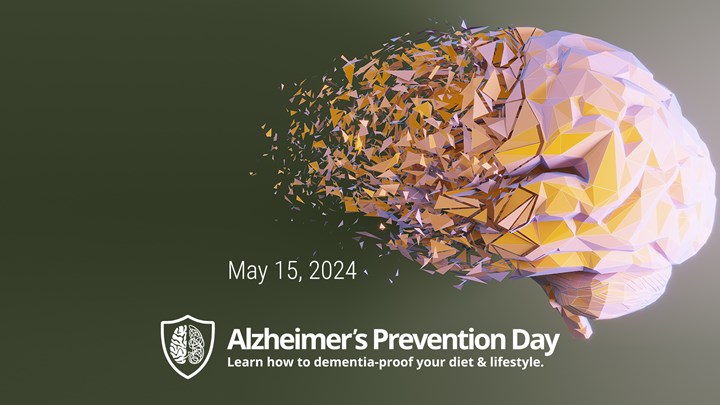Content Sections
- ● The problem of false positives in covid testing
- ● Vitamin D, immune health and gut health
- ● Autistic behaviours linked to gut health
- ● Spain steps into Great Reset territory with proposed four day week
- ● Singapore approves lab-grown meat
- ● Homeopathy – cheap & effective
- ● Antitrust lawsuit filed against Facebook
The problem of false positives in covid testing
The problem of false positive covid test results is hitting the headlines. News broke earlier this week that two members of the England cricket squad in South Africa had tested positive for covid-19 throwing the tour into disarray and leading to the series being cancelled. Following independent verification of the test results it turned out the ‘positive’ results were in fact false positives, meaning the cricketers were not infected. The incident highlights the growing problem of false positives because they are driving measures to counter so called second and third waves of the pandemic. In the US, lab-based scientists researching genes related to SARS-CoV-2 tested positive despite having sheltered for months and having no symptoms after being exposed to viral fragments in the lab. Care Forum Wales, which represents care home providers in Wales, recently revealed that nearly 30% of care homes in Wales had experienced problems where positive test results were found to be false positives. Yet another indication of the problem of false positives tests has come to light as part of a report into the testing of students at the University of Cambridge. Out of 10 testing pools that returned a positive result, all ten were found to be false positives resulting in 0 students being positive for covid-19. As well as the scientific challenges being made to mass testing, a new petition is calling on the UK government to publish data on false positive and negative tests for covid-19 for pillars 1&2 testing. The mounting evidence is now undeniable that PCR testing is so unreliable surely it’s just a matter of time now before it's judged scientifically unworthy?
Vitamin D, immune health and gut health
The health of your gut microbiota affects the way your body makes vitamin D. New research published in Nature Communications found people with a lower diversity of microbes in their guts were less able to make the active form of vitamin D. The team also found that those with 12 types of bacteria that produce butyrate (a short-chain fatty acid that’s vital to the health of our gut lining) had higher levels of the active form of vitamin D. Gut bacteria need fibre from vegetables and fruit to produce butyrate, which is just one of many reasons our Food4Health guidelines is heavily plant-based. Another new study has directly linked the health of our gut microbiota to that of our immune system giving us yet more reason to ensure we include a wide and diverse range of plant foods in our diet. You can find out more about why vitamin D is so essential to our health and wellbeing, how to test your levels and what levels of supplements to take to support immune system resilience during the winter months in our Test & Take D campaign.
Autistic behaviours linked to gut health
A new study published in Autism has found repetitive behaviours in children with autism may be exacerbated by poor gastrointestinal health. The severity of other symptoms related to autism was also associated with severe constipation, stomach pain and other gut difficulties. The link between poor gut health and autistic behaviours has been known and dismissed for years. It's good to see it gaining ground in the maintream literature. There is much that can be done to improve gut health in individuals diagnosed with autism by making dietary changes and in turn potentially ameliorate associated behaviours and symptoms.
Spain steps into Great Reset territory with proposed four day week
In July, Spanish authorities instigated perhaps the world’s biggest economic experiment when it launched a programme offering citzens a universal basic income to counter the bite of the pandemic as the economy suffered. The Spanish government is now mooting the possibility of moving to a 4-day working week saying it would create more jobs. Universal basic income is one of the tenets of the Great Reset envisaged by Klaus Schwab and promoted by the World Economic Forum, along with governments around the world. The pandemic has created the perfect conditions to progress such plans which can only increase government control over virtually every aspect of our lives. Countries that have been staunch democracies till now are turning into totalitarian states before our eyes, with the resultant losses of fundamental freedoms, rights and liberties that that entails.
In Brief
Singapore approves lab-grown meat
Lab-grown chicken has been approved for sale in Singapore. This is the first-time cultivated meat has been approved for sale to the general public. San Francisco based start-up Eat Just has stolen a march on other companies exploring cultivated meat as an alternative to conventionally produced animal products. Meat is so much more than a few stem cells grown in a soup of nutrients in a bioreactor. Such artificial processes cannot even begin to replicate the production of traditional pasture-raised meat let alone the nutrients it contains that humans have evolved with over millennia in order to thrive.
Homeopathy – cheap & effective
A new study from German health insurance company Securvita, has found that those who use homeopathy are healthier and require fewer conventional medical interventions than those who don’t use it. The study compared the data of nearly 16,000 Securvita policy holders who had been using homeopathic treatments for at least three years with a control group of a similar size. The effectiveness of using homeopathic treatment was demonstrated in both adults and children. The report emphasises the therapeutic effect and cost-benefit ratio of the use of homeopathy alongside conventional treatments.
Antitrust lawsuit filed against Facebook
A landmark antitrust lawsuit that could force Facebook to sell What’sApp and Instagram has been filed by a coalition of 48 US states. The action is being led by New York Attorney General, Letitia James. The main thrust of the action focuses on Facebook’s dominance of social media as it’s bought up competitors and blocked market access by other social media platforms that challenge its dominance.








Comments
your voice counts
11 December 2020 at 12:41 am
Does the gut have the same influence to supplementing Vit D as to via UV Sunlight?
It may do - because of the resynthesizing to the active form.
“It may shock you to know that all the world’s bacteria have access to a single gene pool, which has provided an immense resource for adaptation, manifesting an array of breathtaking combinations and re-combinations for three billion years! Any bacterium—at any time—has the ability to use accessory genes, provided by other strains, which permits it to function in ways its own DNA may not cover. The global trading of genes through DNA re-combinations provides for almost endless adaptation possibilities. Therefore, what has been done to one has been done to all. Widespread use of antibacterial agents is both futile and disastrous. Future life sciences and medicine will comprehend the more effective use of agents to stimulate positive adaptation of bacteria resulting in chains of supportive symbiosis. In the presence of love, these positive adaptations naturally occur. In the presence of hatred and fear, negative and resistant strains of bacteria are more likely. Life forms are ever changing, and yet the basic chemistry of life remains the same. Do not cling to forms that are passing, but seek for an understanding of life that embraces and includes all possibilities. This is accomplished through integrating and expanding patterns and relationships. In this way, you will see God as the creative power of life. When I asked that you love one another, I was not just giving you a recipe for human fellowship. This is the doorway to life eternal.” (The Keys of Jeshua - Glenda Green)
Your voice counts
We welcome your comments and are very interested in your point of view, but we ask that you keep them relevant to the article, that they be civil and without commercial links. All comments are moderated prior to being published. We reserve the right to edit or not publish comments that we consider abusive or offensive.
There is extra content here from a third party provider. You will be unable to see this content unless you agree to allow Content Cookies. Cookie Preferences